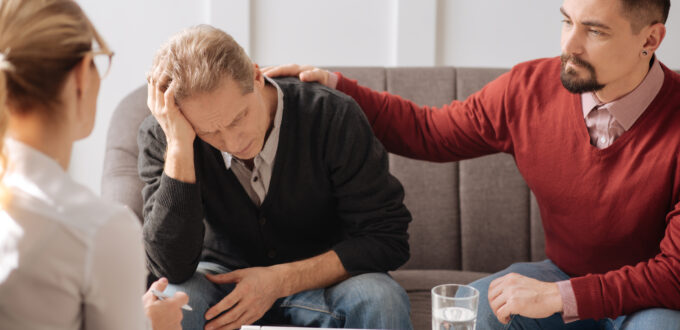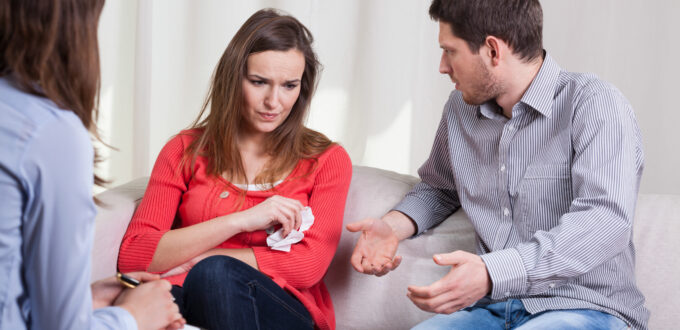Helping couples tolerate the pain that accompanies repairing dramas is about setting the stage for them to learn how to manage tremendous heartache. I once heard the entire process of psychotherapy boiled down to joining with our clients in bearing the unbearable. Couples come to us believing that their pain is unbearable, and we have […]
We humans are somewhat “pain-phobic”. We don’t like it much–for good reasons. The most primitive parts of our brains equate pain with death, so it’s understandable why we are programmed to avoid it. Emotional pain can be even more difficult for us than physical pain, partly because it comes from sources we can’t see, and […]
In Neurodynamic Couples Therapy, the goal of repairing dramas is the metabolizing of feelings which have been exposed through a couple’s recycling dramas. The metabolizing of feelings is complete when they are validated and understood. Validating a feeling is the opposite of dismissing it. It is the antidote to the “You don’t really feel that […]
One of the earliest posts in this blog was about “The Eyes and Ears of the Children”. The content of that post was centered around reminding couples therapists who want to set a safe tone for treatment to maintain awareness of the two “children” who are sitting in front of them and desperately want to […]
The last several posts on this blog have described the purpose of recycling dramas in couple relationships and the four types of recycling dramas. A succinct statement of the goal of Neurodynamic Couples Therapy is to turn recycling dramas into repairing dramas. Couples have already been naturally experiencing recycling dramas before they come to treatment. The job […]
The primary purpose that shame/reunion dramas fulfill in couple relationships is to bring the feeling of shame into conscious awareness so it can be metabolized. There are often secondary emotions being felt simultaneously, but shame is prominent. Because shame is one of those “hot potato” feelings that no one wants to be left holding, the roles in […]
Shame is one of the most difficult and complicated feelings that human beings must grapple with in their life’s journey. It strikes at the heart of our vulnerability and sense of self. Shame can follow actions ranging from making a simple mistake to committing the most serious violations of society’s laws and mores. Neuroscientists have […]
Competitiveness between human beings is programmed into our brains as part of our survival instinct. Competition can be a healthy and useful part of our lives in certain circumstances, but not when it occurs between family members. Parents in a mentally healthy family work to minimize the natural competition that exists between siblings. In an […]
Most people are familiar with the phenomenon of opposites attracting — the introvert marries the extrovert; the saver chooses the spender; the debutante ends up with the guy from “the wrong side of the tracks”. When the opposite characteristics of partners are consciously enjoyed as a form of balance in their relationship, they are not […]










